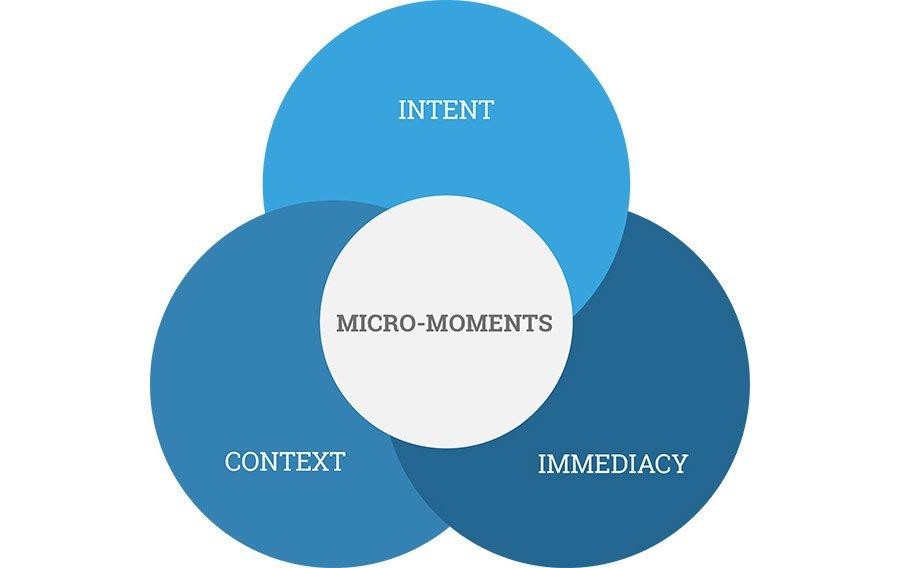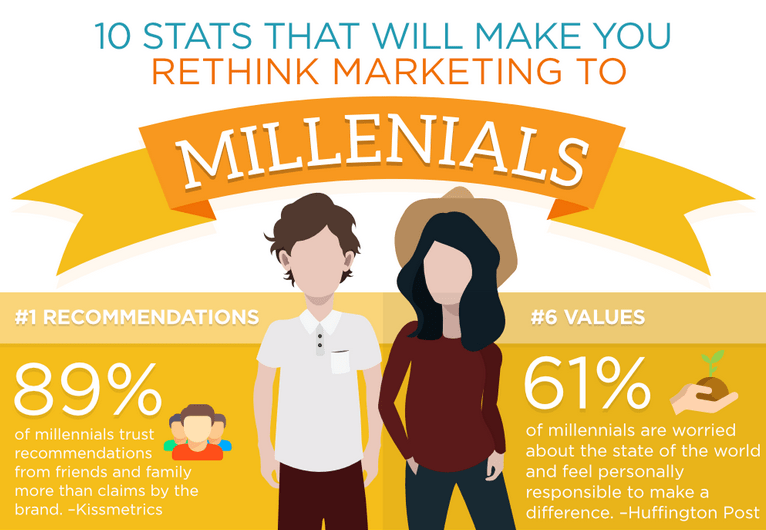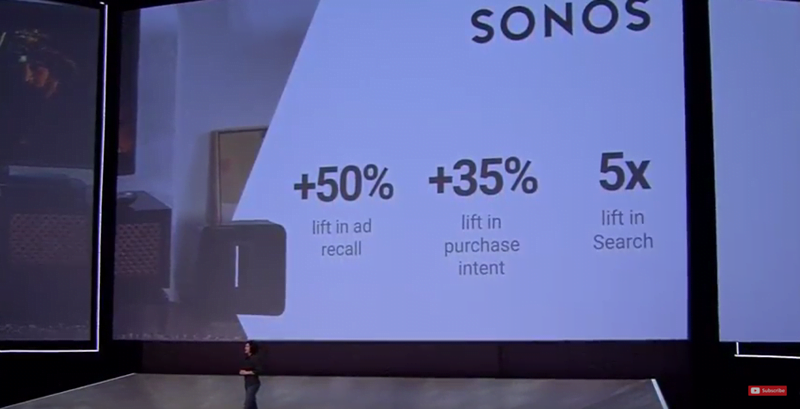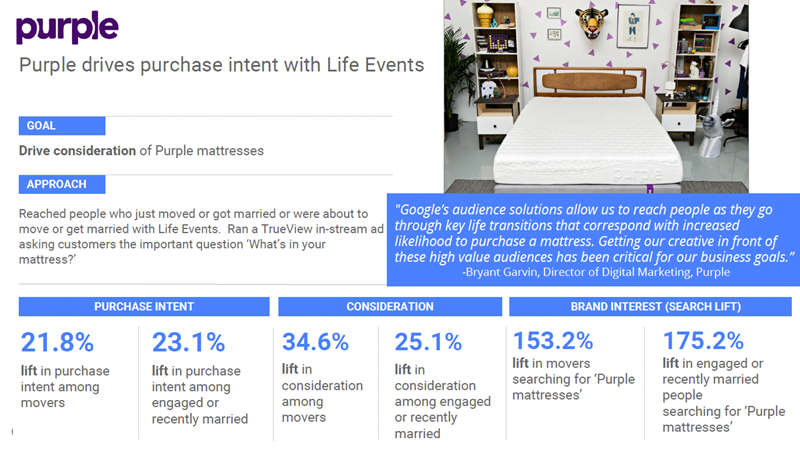
For many years now, Google has been stressing the importance of winning so-called micro-moments. These are the times when consumers are researching and considering a purchase.
It’s crucial to be visible and persuasive at these times, offering the right message at the right moment on the right device, if you want to win the sale.
Until now, the best way to reach and engage those consumers with Google Ads (formerly known as Google AdWords) was by targeting the right high-intent keywords.
But a person’s past searches (and the videos people watch) can be incredibly revealing. Predictive, even.
Thanks to machine learning, Google is now better able to make sense of these signals to better determine intent.
So Google has given advertisers Consumer Patterns & Life Events, a new weapon to target more relevant audience segments.
This is huge.
(By the way, life event targeting was just one of 11 changes and new features announced at Google Marketing Next.)
Facebook was the first to offer this ridiculously powerful targeting capability. Now Google is finally catching up.
Available now on YouTube and coming this fall to Gmail Ads, you can use this targeting feature to get your brand in front of the right people at these crucial moments and to drive more search demand and sales.
What Is Google Ads Life Events Targeting?
Google Ads’ life events help you target users in the months before or after major life events such as:
- Graduation
- Marriage
- Moving
For this to really work, however, searchers must be signed into Google. Ultimately, life events are powered by search histories.
Google wants to help advertisers reach people at key moments when they’re making purchase decisions. According to research from Networked Insights, you want to target and reach the people who are in market for your product or service because it’s the most effective kind of marketing:
“Consumers going through life events are much more likely to have similar purchase needs than consumers that are merely in the same age, gender or income demographic.”
In other words: Want to target millennials? Good luck with that. You might as well target people based on their astrological sign.
Yes, you want to target millennials. But not as if they’re all one big homogeneous blob.
People who were born between 1982 and 2004 (give or take a couple years on either end, depending on who is defining the age range of this group) all have vastly different wants and needs.
Your results will be so much better if you target people based on what’s happening in their lives. Right now.
How Does Life Event Targeting Perform?
At Google Marketing Next, Google highlighted Sonos, which saw great results from life events targeting:
- 50 percent lift in ad recall
- 35 percent lift in purchase intent
- 5x lift in people searching for Sonos on Google
All proof that life events can work amazingly well for advertisers.
Another company that has already found success with life events targeting is Purple, which makes mattresses and a variety of other comfortable products.
Their goal was to drive consideration and purchase intent using Life Events. Purple wanted to reach people who had just moved or gotten married, or were about to move or get married. These are audiences that are more likely to be in the market for a new mattress.
Running a TrueView in-stream ad, Purple asked customers “What’s in your mattress?”
The results?
Among movers, there was a 21.8 percent increase in purchase intent and 34.6 percent lift in consideration.
Among the engaged or recently married, there was a 23.1 percent lift in purchase intent and 25.1 percent lift in consideration.
The search lift was equally impressive.
There was a 153.2 percent increase among movers and a 175.2 percent increase among engaged or recently married people searching for [Purple mattresses].
“Google’s audience solutions allow us to reach people as they go through key life transitions that correspond with increased likelihood to purchase a mattress,” according to Bryant Garvin, director of digital marketing at Purple. “Getting our creative in front of these high value audiences has been critical for our business goals.”
Bottom Line
Consumer Patterns & Life Events targeting is a potential game-changer for advertisers. Although Google is late to the life event targeting party, you now have new ways to generate and harvest more demand for your products or services with PPC marketing.










